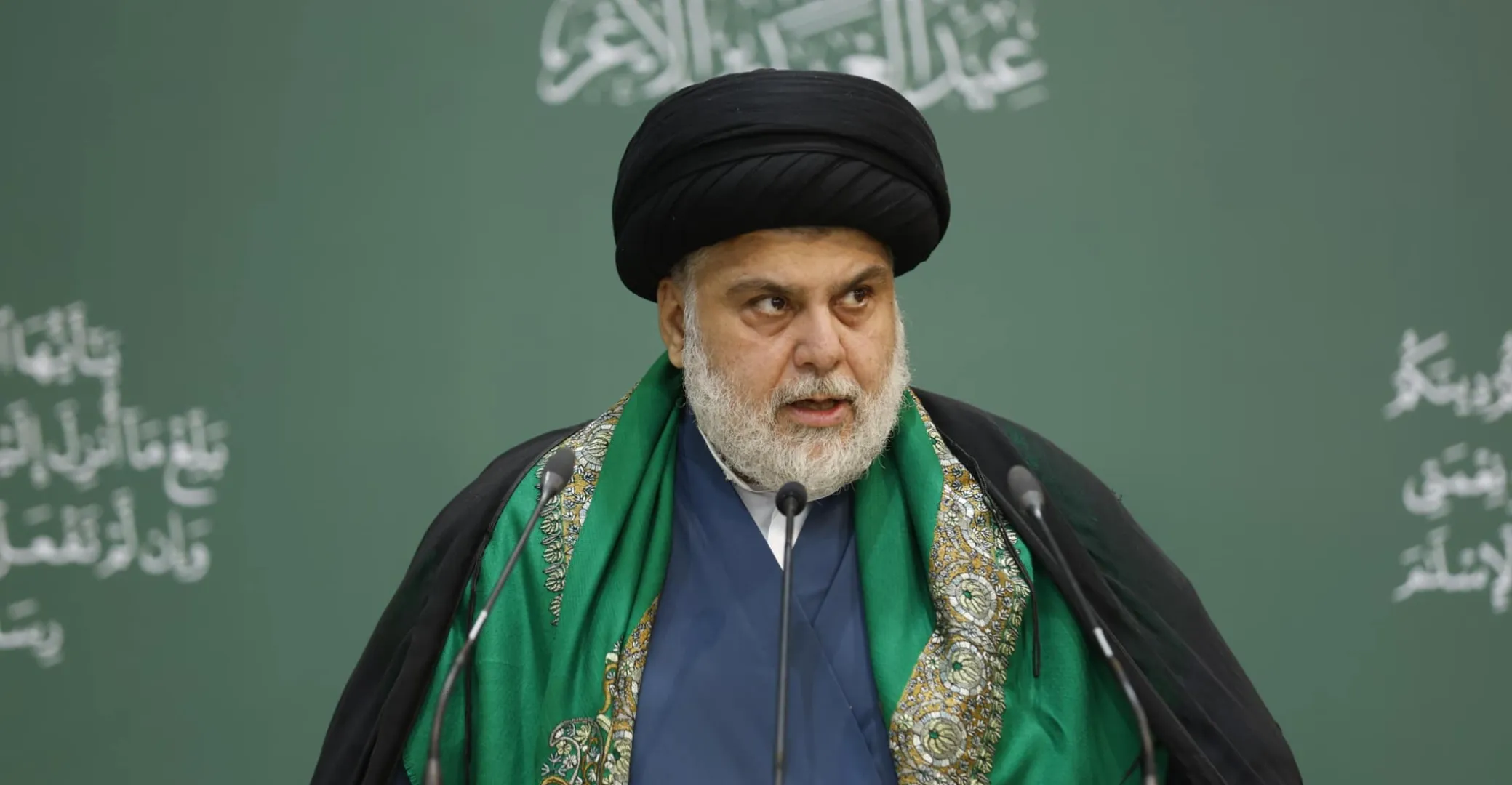Al-Sadr blocks the framework by refusing to interfere in the formation of the new Iraqi government.
 A prominent leader in the Shiite National Movement revealed on Thursday that the movement’s leader, Muqtada al-Sadr, refused to open any channels of dialogue with the Coordination Framework regarding the formation of the next Iraqi government.
A prominent leader in the Shiite National Movement revealed on Thursday that the movement’s leader, Muqtada al-Sadr, refused to open any channels of dialogue with the Coordination Framework regarding the formation of the next Iraqi government.
The leader told Shafaq News Agency that “Al-Sadr refuses to open any channels for dialogue, whether direct or indirect,” pointing to “the position of the leader of the Shiite National Movement, who rejects any interference in the process of forming the anticipated Iraqi government.”
The leader, who asked not to be named, said, “Al-Sadr’s position comes within the framework of adhering to the principles of his movement, and the independence of the political decision away from any external or local pressures, and the movement will continue to follow political developments according to what it sees as appropriate for the interest of Iraq and its people.”
The prominent leader in the movement affirmed that “Al-Sadr and his close team will not participate in any negotiations or political talks, and any attempts to interfere in the formation of the government will not be acceptable,” noting that “Al-Sadr stressed this during his recent meetings with those close to him in any way.”
On the ninth and eleventh of November, Iraq held special and general voting in the parliamentary elections for the sixth parliamentary session, as part of a democratic practice in the political process that emerged after 2003 through the overthrow of the former Baath regime by the forces of the United States of America and its allies.
The Coordination Framework announced on November 17 the formation of the “largest parliamentary bloc” after the Independent High Electoral Commission announced the final results of the special and general voting.
On the same day, the Supreme Federal Court (the highest judicial authority in Iraq) decided to end the work of the House of Representatives and transform the government into a “caretaker government”.
It appears that the coordinating framework, which includes the ruling Shiite political forces in the country that secured the highest number of votes in the recent parliamentary elections, is seeking to finalize the formation of the next Iraqi government as quickly as possible and before the constitutional deadlines in this regard expire.
However, there are some obstacles that may prevent progress in these efforts, most notably the issue of appointing a new Prime Minister, or proceeding with renewing the second term of the current Prime Minister, Mohammed Shia Al-Sudani, who topped the lists of candidates in obtaining the highest number of votes.
A source within the coordination framework revealed last Sunday that its forces had agreed to appoint a representative to meet with the leader of the Shiite National Movement, Muqtada al-Sadr, and inform him of the progress in forming the next government.
The Shiite National Movement, led by Muqtada al-Sadr, boycotted the sixth parliamentary elections, despite attempts by prominent political figures and parties to dissuade it from this position, but those efforts failed.
Shafaq.com
